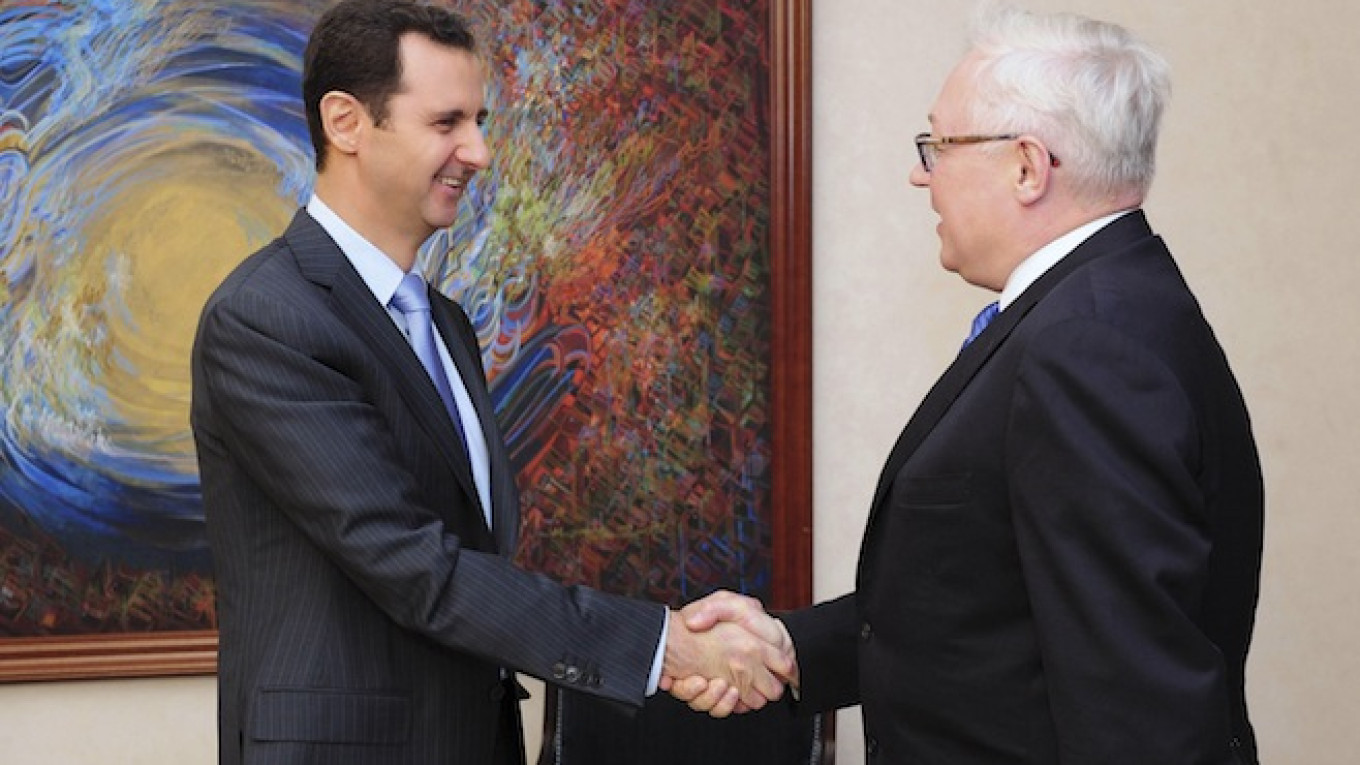Australia, Luxembourg and Jordan have circulated a draft resolution to the 15-member UN Security Council that seeks to boost cross-border humanitarian access in Syria, but it was not immediately clear if Russia and China would support the move.
After more than a month of negotiations with the permanent veto-wielding council members — the U.S., Britain, France, Russia and China — the draft text will now be discussed with the remaining elected members next week, diplomats said Thursday.
Western members have tried to reach a compromise with Russia, a close ally of Syrian President Bashar Assad, and China by using language in the draft similar to that used in a unanimously adopted resolution on Syria's chemical weapons.
Russia, supported by China, has already vetoed four resolutions threatening any action against Assad's government amid a three-year civil war that has killed at least 150,000 people.
The draft resolution threatens measures, such as sanctions, against any Syrian party which does not comply with the council's demands for the immediate and unhindered delivery of humanitarian assistance throughout the country.
This would mean that for any action to be taken, the Security Council would need to agree on a second resolution.
Australia, Luxembourg and Jordan drafted the text as a follow-up to their unanimously adopted February resolution on aid access in Syria, which has failed to make a difference.
The draft does not reference Chapter 7 of the UN charter, which covers the council's authority to enforce decisions with economic sanctions or military force, though the language is the same as what would normally be in a Chapter 7 resolution.
Russia says it would veto a Chapter 7 resolution that would allow cross-border aid deliveries without Syrian government consent.
See also:
UN Council Urges Russia and China to Back Draft Resolution on Syrian Aid
A Message from The Moscow Times:
Dear readers,
We are facing unprecedented challenges. Russia's Prosecutor General's Office has designated The Moscow Times as an "undesirable" organization, criminalizing our work and putting our staff at risk of prosecution. This follows our earlier unjust labeling as a "foreign agent."
These actions are direct attempts to silence independent journalism in Russia. The authorities claim our work "discredits the decisions of the Russian leadership." We see things differently: we strive to provide accurate, unbiased reporting on Russia.
We, the journalists of The Moscow Times, refuse to be silenced. But to continue our work, we need your help.
Your support, no matter how small, makes a world of difference. If you can, please support us monthly starting from just $2. It's quick to set up, and every contribution makes a significant impact.
By supporting The Moscow Times, you're defending open, independent journalism in the face of repression. Thank you for standing with us.
Remind me later.


